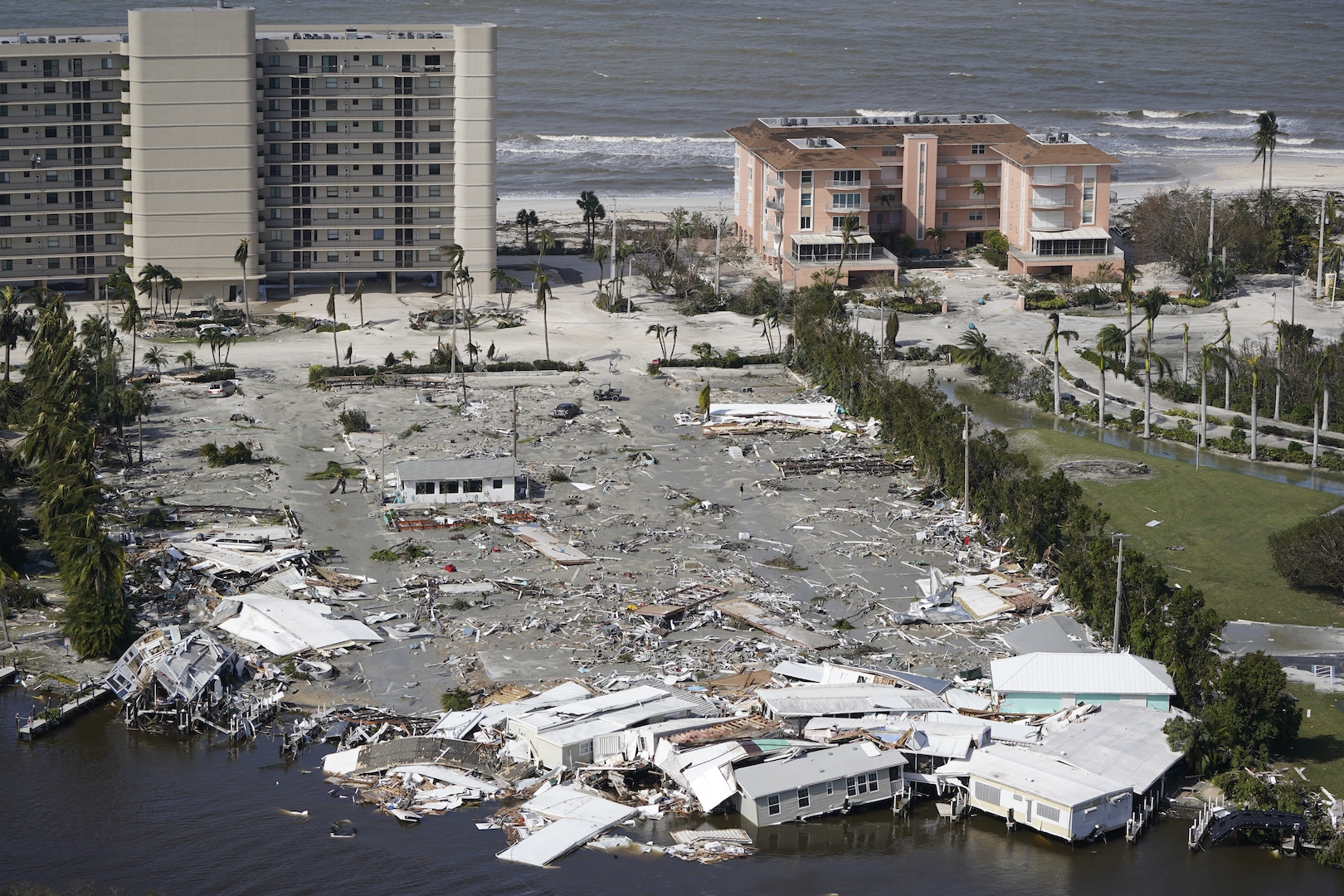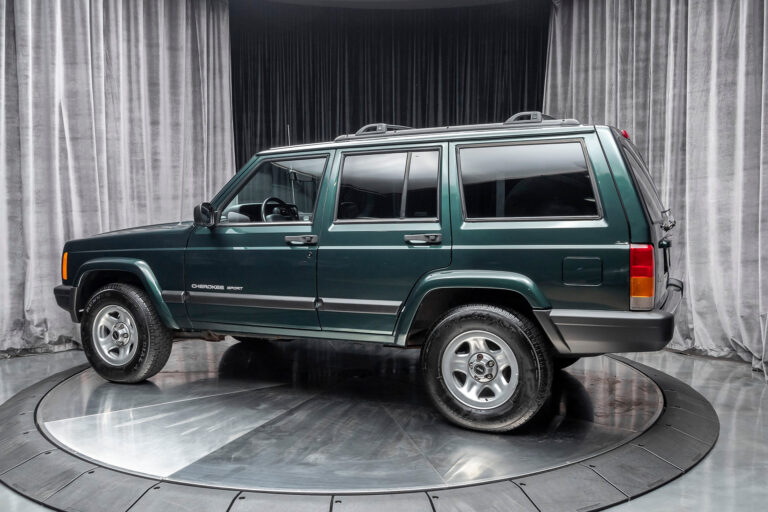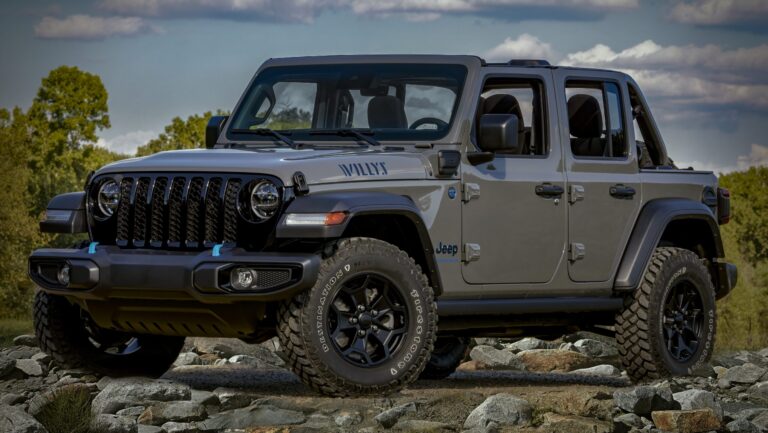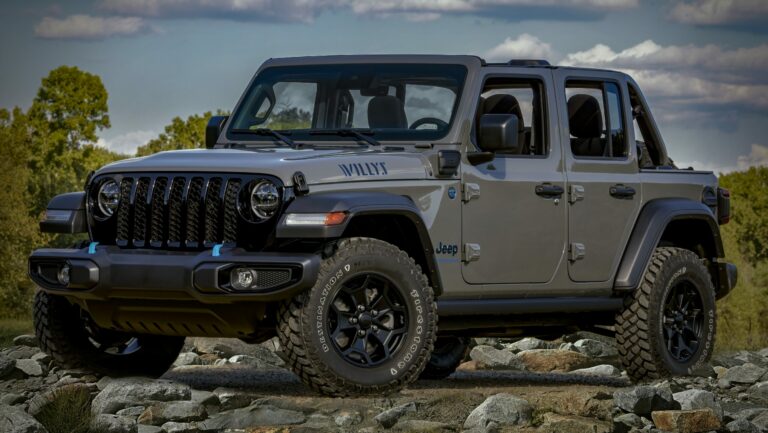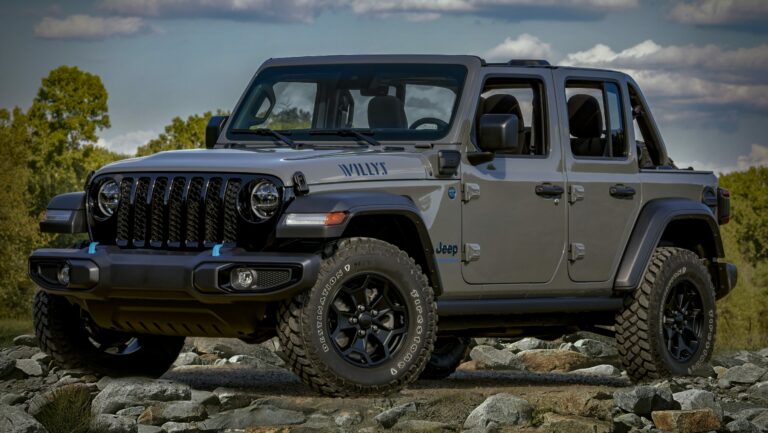Damaged Jeep For Sale: A Comprehensive Buyer’s Guide
Damaged Jeep For Sale: A Comprehensive Buyer’s Guide /jeeps.truckstrend.com
Introduction: Unlocking the Potential in Imperfection
The allure of a Jeep is undeniable. Its iconic design, legendary off-road capability, and adventurous spirit make it a dream vehicle for many. However, the price tag for a new or even well-maintained used Jeep can often be a significant hurdle. This is where the world of "Damaged Jeep For Sale" enters the picture – an intriguing, often misunderstood, and potentially highly rewarding niche for the savvy buyer.
Damaged Jeep For Sale: A Comprehensive Buyer’s Guide
A "damaged Jeep for sale" refers to a Jeep vehicle that has sustained some form of impairment, ranging from minor cosmetic blemishes to severe mechanical or structural issues resulting from accidents, natural disasters, theft recovery, or simple wear and tear. For some, the idea of buying a damaged vehicle might conjure images of money pits and endless headaches. But for the informed enthusiast, the DIY mechanic, or the shrewd investor, a damaged Jeep represents an incredible opportunity. It’s a chance to acquire a coveted vehicle at a fraction of its market value, to embark on a challenging yet fulfilling restoration project, or to source valuable parts for another vehicle. This comprehensive guide will delve into every aspect of purchasing a damaged Jeep, offering practical advice, detailing potential pitfalls, and illuminating the path to a successful acquisition.
What Constitutes "Damaged"? Categorizing the Imperfections
Understanding the spectrum of "damage" is crucial before diving into the market. Not all damage is created equal, and each category presents its own set of challenges and opportunities.
- Accident Damage: This is perhaps the most common type. It can range from minor fender benders (cosmetic damage to body panels, bumpers, lights) to severe collisions affecting the frame, suspension, engine, or airbags. The extent of impact determines the complexity and cost of repairs.
- Mechanical Failure: The Jeep might look pristine on the outside but suffer from a blown engine, a failing transmission, a faulty transfer case, or complex electrical issues. These problems often require significant mechanical expertise and parts replacement.
- Flood Damage: One of the trickiest and potentially most problematic types of damage. Water can wreak havoc on a vehicle’s electrical system, interior components (mold, mildew), and even mechanical parts (rust, corrosion) long after the water recedes. The severity depends on the water level (e.g., standing water vs. submerged) and type (fresh vs. saltwater).
- Fire Damage: Similar to flood damage in its destructive potential, fire can destroy wiring, melt plastics, warp metal, and compromise structural integrity. Even small fires can cause extensive hidden damage.
- Theft Recovery: These Jeeps might be recovered after being stolen and could have missing parts (wheels, stereo, engine components), damaged ignition systems, or vandalism. Often, the damage is less about a crash and more about neglect or intentional tampering.
- Hail Damage: Predominantly cosmetic, hail damage results in numerous dents across the body panels. While not affecting drivability, repairing it can be costly if opting for traditional bodywork over paintless dent repair (PDR).
- Cosmetic Blemishes/Wear & Tear: This includes extensive rust, faded paint, torn interiors, non-functional accessories (AC, power windows), or high mileage leading to general deterioration. These are often the easiest and cheapest to address, making them attractive for those seeking a minor project.

The Allure: Benefits of Buying a Damaged Jeep

Despite the obvious downsides, there are compelling reasons why someone would choose to purchase a damaged Jeep.
- Significant Cost Savings: This is the primary driver. A damaged Jeep can be acquired for a fraction of the cost of its undamaged counterpart, sometimes as low as 20-50% of the market value, depending on the severity of the damage.
- Project Vehicle Potential: For the mechanically inclined or those looking to learn, a damaged Jeep offers an ideal platform for a restoration project. It’s a hands-on learning experience that can result in a deeply personalized and rewarding vehicle.
- Customization Opportunities: Since you’ll be repairing or replacing parts anyway, a damaged Jeep provides a blank canvas for modifications and upgrades. Want a lift kit, custom bumpers, or a winch? Now’s the perfect time to integrate them during the repair process without feeling like you’re replacing perfectly good parts.
- Parts Donor: If you already own a Jeep and need specific components (engine, transmission, axles, interior pieces), buying a damaged Jeep of the same model can be a far more economical way to source parts than buying new or even used components individually.
- Resale Value (After Repair): If repaired correctly and documented thoroughly, a damaged Jeep (especially one with a "rebuilt" title) can often be sold for a profit or at least recoup the investment.

The Hunt: Where to Find Damaged Jeeps For Sale
Finding the right damaged Jeep requires knowing where to look.
- Online Salvage Auctions: Websites like Copart, IAAI (Insurance Auto Auctions), and others are primary sources. They list thousands of damaged vehicles from insurance companies, rental fleets, and financial institutions. You’ll need to register, and some require a dealer license or a broker.
- Salvage Yards/Auto Recyclers: Local salvage yards often have vehicles that are too damaged to repair but have many usable parts. Some also sell vehicles that could be restored. Visiting in person allows for direct inspection.
- Online Marketplaces: Websites like eBay Motors, Craigslist, Facebook Marketplace, and dedicated Jeep forums often have private sellers listing damaged vehicles. Be wary of scams and always inspect in person.
- Used Car Dealerships (Specializing in Salvage/Rebuilt Titles): Some smaller dealerships specialize in buying damaged vehicles, repairing them, and selling them with rebuilt titles. While the mark-up will be higher, the vehicle will theoretically be drivable and inspected.
- Tow Yards/Impound Lots: Less common, but sometimes vehicles that have been impounded or towed and never claimed might be sold at auction by these facilities.
Due Diligence: Essential Considerations Before Buying
Purchasing a damaged Jeep is not for the faint of heart. Thorough due diligence is paramount to avoid a costly mistake.
- Understand Title Types:
- Salvage Issued when an insurance company declares a vehicle a "total loss" because the cost of repairs exceeds a certain percentage (e.g., 70-80%) of its pre-damage value. A salvage title means the vehicle is generally not legal to drive until repaired and inspected.
- Rebuilt/Reconstructed Issued after a salvage titled vehicle has been repaired and passed a state-mandated inspection confirming it’s safe for the road. While legal to drive, it will always carry this brand, which impacts resale value.
- Junk/Scrap Means the vehicle is only good for parts or scrap metal and cannot be legally registered or driven.
- Clean Title (with Damage Disclosure): Rare, but sometimes a vehicle with significant damage (e.g., hail, minor accident) might still have a clean title if the owner chose not to file an insurance claim or the damage wasn’t severe enough to total it. Always get a detailed vehicle history report.
- Get a Vehicle History Report (VHR): Services like Carfax or AutoCheck are indispensable. They can reveal accident history, flood damage, title brands, odometer discrepancies, and service records. This is crucial for verifying the damage reported by the seller.
- Budgeting for Repairs: This is the most critical financial aspect. Get multiple repair estimates from reputable shops before buying. Factor in not just parts and labor, but also potential hidden damage, specialized tools, and time. A common rule of thumb is to assume repair costs will be 20-30% higher than your initial estimate.
- Your Skill Level vs. Professional Help: Honestly assess your mechanical and bodywork skills. Are you capable of tackling the repairs yourself, or will you rely on mechanics? Labor costs can quickly outweigh savings if you’re not doing the work.
- Parts Availability and Cost: Jeeps are generally good for parts availability due to their popularity, but specific model years or limited editions might have harder-to-find components. Research parts costs in advance.
- Insurance Implications: Insuring a vehicle with a salvage or rebuilt title can be challenging and more expensive. Some insurers might only offer liability coverage, not comprehensive or collision. Check with your insurance provider before purchase.
- Resale Value After Repair: Even after a perfect repair, a rebuilt title will always suppress the resale value compared to a clean-title vehicle. Factor this into your potential investment.
- State-Specific Regulations: Each state has different requirements for inspecting and titling rebuilt vehicles. Understand your local Department of Motor Vehicles (DMV) regulations.
The Inspection: What to Look For
Never buy a damaged Jeep sight unseen if at all possible. A thorough inspection, ideally by a qualified mechanic specializing in collision repair or a Jeep specialist, is non-negotiable.
- Frame Damage: This is the most critical. A bent or twisted frame can be extremely difficult and expensive to repair correctly, often making the vehicle unsafe or impossible to align properly. Look for creases, buckling, or mismatched gaps.
- Engine & Transmission: Check for fluid leaks, visible damage (cracks, punctures), missing components, or signs of overheating. If possible, try to start it (if permitted) and listen for unusual noises.
- Suspension & Steering: Look for bent components, broken control arms, damaged axles, or leaks from shocks.
- Electrical System: Especially crucial for flood or fire-damaged vehicles. Look for corroded wires, melted insulation, non-functional electronics, or warning lights on the dashboard.
- Interior Damage: Mold, mildew, torn seats, damaged dashboards, or deployed airbags (which are expensive to replace).
- Rust and Corrosion: Common on older Jeeps or flood-damaged ones. Check the frame, floor pans, suspension components, and body mounts.
- Airbag Deployment: If airbags have deployed, it indicates a significant impact, and replacing the entire airbag system (modules, sensors, bags) is very costly.
- Fluid Levels and Condition: Check oil, coolant, transmission fluid, and brake fluid. Discolored or milky fluids can indicate serious internal problems.
Sample Pricing Table for Damaged Jeeps (Illustrative Ranges)
Please note: Prices vary drastically based on Jeep model (Wrangler, Cherokee, Grand Cherokee, etc.), year, mileage, specific damage extent, location, and market demand. This table provides illustrative ranges for common damage types.
| Damage Type & Severity | Example Description | Estimated Purchase Price Range (USD) | Estimated Repair Cost Range (USD) | Notes/Considerations |
|---|---|---|---|---|
| Minor Cosmetic | Dents, scratches, minor bumper damage, faded paint, interior wear. No structural/mechanical issues. | $2,000 – $8,000 | $500 – $3,000 | Ideal for DIY enthusiasts. Often has a clean title. Low risk, good for learning. |
| Moderate Accident | Front/rear end collision, deployed airbags, damaged fender/hood/grille, bent suspension components. Frame may or may not be affected. | $3,000 – $10,000 | $3,000 – $10,000+ | Likely a salvage title. Frame check is critical. Airbag replacement is costly. Requires professional bodywork. |
| Major Accident | Severe front/rear/side impact, significant frame damage, engine/transmission potentially affected, multiple airbags deployed. | $1,000 – $5,000 | $10,000 – $25,000+ (often totals) | High risk, likely a parts donor. Repair costs can quickly exceed vehicle value. Requires specialized frame straightening. |
| Mechanical Failure | Blown engine, seized transmission, major electrical issues, transfer case failure. Body often in good condition. | $2,500 – $7,000 | $3,000 – $12,000+ | Good for those with powertrain expertise. Engine/transmission swaps are common. Body condition influences overall value. |
| Flood Damage | Water intrusion up to dashboard or seats. Electrical issues, mold, rust in hidden areas. | $500 – $4,000 | $5,000 – $20,000+ (unpredictable) | Highest risk. Unpredictable, long-term issues. Often only good for parts. Comprehensive inspection essential. |
| Fire Damage | Engine bay fire, interior fire. Melted components, compromised wiring, structural integrity issues. | $500 – $3,000 | $8,000 – $20,000+ (often totals) | Very high risk. Extensive electrical and structural repair needed. Often only good for parts. |
| Theft Recovery | Missing wheels/stereo, damaged ignition, minor vandalism. Often cosmetic or easily replaceable parts. | $2,000 – $7,000 | $1,000 – $5,000 | Damage often easier to assess and repair. May have a clean or salvage title depending on state/insurer. |
Disclaimer: These are rough estimates. Always get a professional assessment and detailed repair quotes before making a purchase.
Concluding Summary: A Smart Move for the Right Buyer
Buying a "Damaged Jeep For Sale" is undeniably a high-risk, high-reward endeavor. It’s not a decision to be taken lightly, but for the well-prepared and diligent buyer, it can unlock significant value. Whether you dream of a custom off-road build, need a reliable source for parts, or simply relish the challenge of bringing a vehicle back to life, a damaged Jeep offers a unique pathway to Jeep ownership at a fraction of the cost.
Success in this arena hinges on meticulous research, thorough inspection, realistic budgeting, and a clear understanding of your own mechanical capabilities or access to trusted professionals. Embrace the due diligence, factor in the hidden costs, and be prepared for the unexpected. For the right individual, a damaged Jeep isn’t just a project; it’s an adventure waiting to happen, transforming imperfection into a personalized masterpiece.
Frequently Asked Questions (FAQ) about Damaged Jeeps For Sale
Q1: Is it worth buying a damaged Jeep?
A1: It depends entirely on the extent of the damage, the purchase price, your budget for repairs, and your mechanical skills. For minor damage or specific mechanical issues, it can be very worthwhile. For severe frame damage or extensive flood/fire damage, it’s often only worth it for parts.
Q2: What kind of title should I look for?
A2: A "rebuilt" or "reconstructed" title is generally preferred over a "salvage" title, as it means the vehicle has already been repaired and inspected for roadworthiness. A "clean" title with disclosed damage is also good, but rare for significant issues. Avoid "junk" or "scrap" titles if you intend to drive the vehicle.
Q3: Can I get insurance on a salvage or rebuilt title Jeep?
A3: Yes, but it can be more challenging and expensive. Many insurers will only offer liability coverage for salvage or rebuilt title vehicles, as determining their pre-damage value for comprehensive/collision coverage is difficult. Always check with your insurance provider before purchasing.
Q4: How do I accurately estimate the repair cost?
A4: The best way is to have a qualified mechanic or body shop inspect the vehicle and provide a detailed repair estimate. Factor in parts, labor, and potential hidden damage. Always add a contingency (e.g., 20-30%) to your estimate for unforeseen issues.
Q5: Where are the best places to find damaged Jeeps for sale?
A5: Online salvage auction sites (Copart, IAAI) are the largest sources. Local salvage yards, online marketplaces (eBay Motors, Facebook Marketplace), and specialized rebuilt-title dealerships are also good options.
Q6: What are common problems with damaged Jeeps I should be aware of?
A6: Beyond the obvious collision damage, common issues include frame damage (especially on Wranglers), electrical gremlins (especially with flood damage), rust, and mechanical issues related to age and mileage (e.g., transmission, engine, transfer case problems). Always research common issues for the specific Jeep model and year you’re considering.
Q7: Can I register a salvage title Jeep?
A7: No, not directly. A vehicle with a salvage title cannot be legally registered or driven on public roads in most states until it has been repaired and passes a state-mandated inspection. Once it passes, it will typically be issued a "rebuilt" or "reconstructed" title.
Q8: Will a rebuilt title affect the resale value?
A8: Yes, a rebuilt title will almost always result in a lower resale value compared to an identical vehicle with a clean title, even if the repairs were done perfectly. Buyers are often wary of rebuilt vehicles, and insurance costs can deter them.

